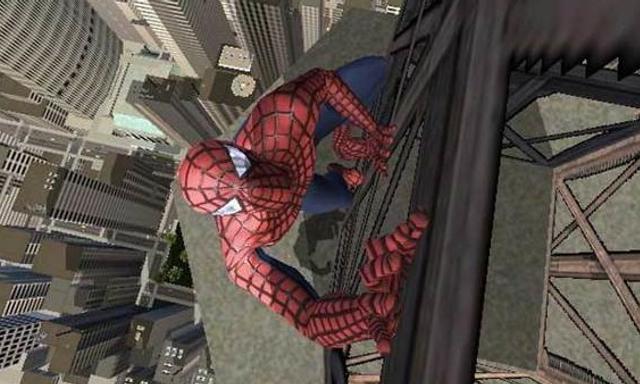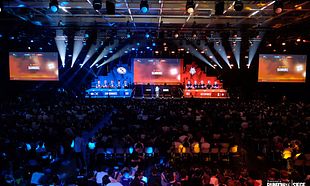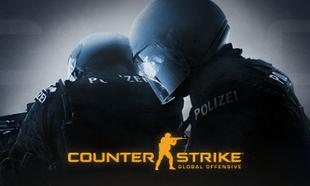Video games have gone through many cycles, from boom to bust or the sprite era to 4K photo-realistic visuals, but it has lost one thing along the way; the movie tie-in video game.
Granted, most of them were utter crap and were cheap, rushed out derivatives, but we got the occasional good one.
In fact, one tie-in game was so bad that it caused the crash of the entire video game industry in the Western world.
'E.T.' for the Atari 2600 was rushed to market to meet demand for the Christmas market in 1982 and was so shoddily made it proved to be the final straw for the public at large.
'E.T.' was symbolic of what the gaming industry had become by the early 1980s; endless shovelware and rushed-out games with any old licence slapped on.
It wasn't until Nintendo had success with their Nintendo Entertainment System did the home video game market recover.
With that established, we may now know why developers simply opt to put their character in 'Fortnite' rather than causing the crash of an entire industry.
The idea behind a tie-in video game is easy; a big blockbuster is coming out, so why not get the millions of people who will see the movie to play your game?
Classic examples of this movie tie-in are the 'Star Wars' or 'Spider-Man' games in the PlayStation 2 era that would more often than not, be released the same day as the movie, or at least the same week.
However, this trend wasn't just exclusive to the 2000's.
The vast majority of these games were rushed to market with a release date for the film firmly locked in leaving developers little time to craft truly memorable or great games.
A video game based on a film would look to cash in on the big trend in gaming at a given moment in time.
The very first video game to be based on a film was 1979's 'Star Trek: Phaser Strike' which was released to coincide with the release of the 1979 'Star Trek: The Motion Picture'
If you were to guess what a 'Star Trek' video game would be in 1979, you'd be absolutely right in thinking it was a shameless reskin of 'Space Invaders'.
A common criticism of modern video games is developers are always chasing trends years after it was popular, but this isn't a new trend in video games by any stretch of the imagination.
When 2013's 'Star Trek Into Darkness' was released, the world of gaming was going through a love affair with the sandbox game and had gotten over its fixation with 'Gears Of War' style third-person shooters.
The great challenge with video game development is making sure the genre you're making the game in is still popular by the time the game is released.
In the context of May 2013 when the 'Star Trek' video game was released for the 7th generation of video game consoles, the third-person cover-based shooter had fallen out of favour with the masses and were embracing Ubisoft's brand of open-world game where liberating districts were key.
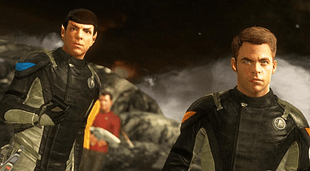
'Far Cry 3' was released 6 months prior to the release of 'Star Trek' and the developers weren't to know that the open-world game was about to become the next big thing in gaming and that audiences were not going to be as receptive to the tried and tested third-person shooter.
The developers cited 'Mass Effect', 'Uncharted' and 'Metroid' as examples of games they wanted to emulate with their 'Star Trek' game, and one must wonder if they landed careers in stand-up comedy or PR after the fact, because the game was nowhere near the quality of those three tentpoles.
The month after release, 'The Last Of Us' was released which is a third-person shooter with cover elements, but was developed by a team who were experts in third-person action games and as you may have heard, had perhaps the finest story ever committed to disc.
Direct-To-Video-Game
Once in a blue moon, the films producers and game developers work in tandem and collaborate heavily on the game, most notably Peter Jackson and The Wachowskis.
Jackson is an avowed gamer and was actively involved in trying to adapt 'Halo' for the big screen fresh off the success of 'Lord Of The Rings' and The Wachowskis went so far as to include themselves in a 'Matrix' spin-off game as digital avatars.
In Jackson's case, he personally handpicked the development team behind Ubisoft's 2003's cult hit 'Beyond Good and Evil' to make a game based on his 2005 'King Kong' remake, and was actively involved in the project.
'Peter Jackson's King Kong: The Official Game of the Movie' was a launch title for the Xbox 360, and the graphics still hold up decently well nearly 20 years later.
Jackson was reportedly displeased with his lack of input and the resulting EA games that spawned from his 'Lord Of The Rings' trilogy, and vowed to be as hands-on with the 'King Kong' game as he was able to.
A New York Times article from 2005 revealed that Jackson invited the game developers to the set of the film and exchanged ideas with them, and was actively involved in the process from blank page to finished product.
The big ape's outing for the PlayStation 2, Xbox 360, Gamecube and just about anything with a screen is 'Mad Max: Fury Road' levels of "they didn't need to go through this much effort, really, this is too good".
Jackson's enthusiastic hands-on approach pales in comparison to The Wachowskis however, who went so far as to write and direct more than an hour of brand-new footage for 'Enter The Matrix' and have the tie-in game serve as part of the film's story.
'The Matrix Reloaded' was a bold cross-media experiment, and The Wachowskis went all out in making fans excited for the sequel to their hit 1999 film.
If you wanted to understand character motivations in the film, you had to play the video game.
If you wanted to know more about the setting and lore, you had to watch 'The Animatrix'.
In this instance, the game releasing on the same day as the film was a benefit, as sales were strong and the game attained best-selling status.
To tie into the release of the latest 'Matrix' film director Lana Wachowski wrote and directed a brand new live-action segment for a tech demo that showed the power of the Unreal Engine 5, which shows that after all these years she is still a gamer at heart.
Of course, the auteur crossing over with the world of video games is the exception rather than the rule, and the vast majority of tie-in video games over the years are simple, straight-down-the-middle third-person action-adventure games.
Batman Saves The Day
2009 was the dying breath of the movie tie-in game, with games based on 'Terminator Salvation, 'X-Men Origins: Wolverine', 'Watchmen', 'Avatar', 'Transformers: Revenge Of The Fallen', 'Up' and 'Harry Potter And The Half-Blood Prince' all receiving tie-in video games.
'Terminator Salvation' quickly attained cult status among gamers for being a quick and easy way to level up your Gamerscore on Xbox or secure an easy Platinum trophy on PlayStation 3, as the game was a strictly linear game that could be finished in roughly 3 hours.
This writer has strong memories of seeing the game in the used section of GameStop and Xtravision in the weeks and months following release as word spread of how easily attainable the Platinum trophy was for the game.
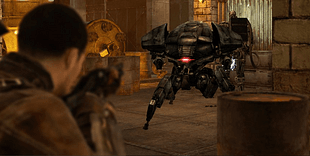
The 2000's served as a golden age for the movie tie-in game, but the 2010s were not kind to the genre.
Instead of triple AAA games for the latest consoles, tie-in games were relegated to the mobile market and were usually published by Gameloft.
The emergence of the superhero film as the predominant force in cinema may have inadvertently killed off the movie tie-in game.
'The Dark Knight' had a tie-in game in the works at the dearly-departed Pandemic Studios, and the game was set to be an open-world game to tie in with Christopher Nolan's blockbuster.
Pandemic Studios are best known for cult hits such as the 'Destroy All Humans!' and 'Mercenaries' series, and the subversive Aussie developers being handed the keys to a franchise like 'Batman' was incredibly exciting on paper.
The game was initially designed as a linear game similar to 2005's 'Batman Begins' tie-in but decided to switch to the open-world approach they had mastered in their previous games and felt it would compliment the world created by Christopher Nolan.
While under normal circumstances this would have been an admirable attempt to respect the source material, changing game engines and approaches midway through development is the equivalent of deploying the handbrake when travelling on a motorway.
Pandemic Studios were owned by Electronic Arts at the time, and the company sensed blood in the water.
It soon became apparent the game would miss its deadline of December 2008, and the project was shelved.
EA are reported to have lost out on at least $100 million dollars in revenue from the game not being released, and the Batman licence was quickly snapped up by Warner Brothers.
The following year, Batman starred in 'Arkham Asylum' which didn't follow the plot of an established film and instead told its own story.
On top of that, the game pioneered the free-flowing combat system that became the standard combat system for practically every major third-person action game for the decade following release.
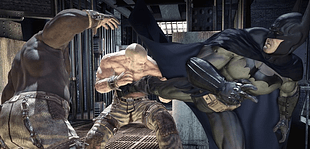
The success of 'Arkham Asylum' was a major surprise to many in the gaming industry.
The game won numerous Game Of The Year awards, which was highly unusual for a licensed game.
Not being tied to an existing film gave developers Rocksteady the chance to flex their muscles and put their own stamp on the iconic character without following a pre-existing storyline or plot.
Not So Marvelous
Over in the Marvel camp, an 'Avengers' game in the style of 'Left4Dead' was close to completion and was due to tie into the May 2012 of the original 'Avengers' film.
Financial problems at publisher THQ led to the game being cancelled and it would take until 2020 until The Avengers had an outing in video game form with Square Enix's painfully mediocre live service slog.
The superhero tag team had made appearances in games before now thanks to the Lego series of games, but it is easier to list the films that Lego hasn't adapted into a game.
At this stage, we're expecting Lego to announce a Mike Leigh game.
'The Avengers' game has a small but dedicated fanbase and the game receives fairly regular updates, but a large reason the game didn't resonate with the public at large is they couldn't look past Robert Downey Junior and Chris Evans' portrayals of Iron Man and Captain America respectively, so when the characters show up in a new computer game looking like action figures ordered off Wish, it shouldn't come as a surprise when audiences opted to just watch the films again than play as the characters.
On top of that, the gameplay was your typical sub 'World Of Warcraft' MMO tripe where you had to grind to earn a new set of skills for Captain America, and in a year when 'Animal Crossing: New Horizons' and 'Ghost Of Tsushima' were available to consumers, interest quickly faded.
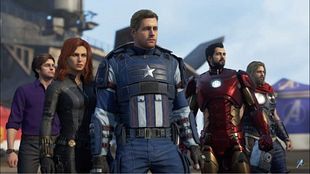
It is fair to say that gaming history would have been entirely different if games based on superhero film tie-ins existed in the 7th generation of consoles.
The success of 'Arkham Asylum' on game design and gameplay had a profound impact on the gaming landscape - if you've played a game in the last 10 years where you're battling a group of enemies and there's an indicator over your head to indicate there's an enemy attacking, they're cribbing directly from 'Arkham Asylum'.
Gaming culture in the late 2000's was conditioned to expect a tie-in game to go with a blockbuster film, and in the wake of 'The Dark Knight', audiences wanted anything and everything to do with Batman.
The game sold remarkably well for a number of reasons (it being really bloody good being chief among them) but there was pent-up demand following 'The Dark Knight'.
The only superhero to receive tie-in video games in the 2010's was Spider-Man, and his games tied into the Andrew Garfield films.
Those games took cues from Arkham Asylum but also tried to change the swinging style that was mastered in the PlayStation 2 era.
'The Amazing Spider-Man 2' killed the tie-in experiment as we knew it, taking elements from different games and utterly failing in the process.
'The Amazing-Spider Man 2' was released in 2014, and since then if a film studio wants to promote a film they'll make their character show up in an existing live service game.
The most infamous example of this is 'Star Wars Episode 9: The Rise Of Skywalker' showing Emperor Palpatine's speech in 'Fortnite' of all places, so when audiences were greeted with the infamous "THE DEAD SPEAK!" line in the opening crawl, we didn't see the characters react to Palpatine's message in-universe, instead, you had to play 'Fortnite' to get this crucial piece of plot information.
'John Wick', 'The Avengers', 'Dune', 'Space Jam: A New Legacy', and 'Wreck-It Ralph' are among the films to use 'Fortnite' as a promotional tool for their film as opposed to a studio paying a third-party studio to develop a game for them.
In an era where developers and publishers are looking to gain every red cent they can from in-game purchases and downloadable content, making a tie-in game for a film simply isn't a good business model.
Why would a developer spend millions on a game that most players can beat in 6 hours with little replayability factor when they could spend the same resources on a first-person shooter with microtransactions?
There is also the factor that film studios don't want to tarnish the reputation of their film by having their film associated with a bad game.
Why bother giving some third-party developer the rights when you know you will instantly get millions of eyes on your film simply by making your character show up in 'Fortnite'?
Of course, with this philosophy, we are being deprived of the genuinely brilliant tie-in games like 'Escape From Butcher Bay' or 'Spider-Man 2' but in the eyes of game company higher-ups, the bottom line is king.
